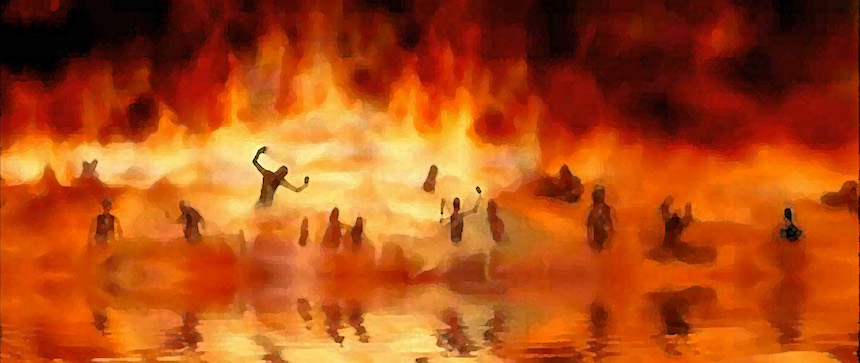The Last Prophet
 A while ago I posted a video of the first film adaptation I saw of the life of Muhammad. Since watching it again, YouTube has been recommending this animate version:
A while ago I posted a video of the first film adaptation I saw of the life of Muhammad. Since watching it again, YouTube has been recommending this animate version:
https://www.youtube.com/watch?v=Uudu_hVQeA8
"We are travellers…not yet in our native land" – St. Augustine
 A while ago I posted a video of the first film adaptation I saw of the life of Muhammad. Since watching it again, YouTube has been recommending this animate version:
A while ago I posted a video of the first film adaptation I saw of the life of Muhammad. Since watching it again, YouTube has been recommending this animate version:
https://www.youtube.com/watch?v=Uudu_hVQeA8


As you will have no doubt noticed, I have been recently working my way through reading the Qur’an. As a result, over the last few days my inbox has begun filling up with messages related to Islam…
I received one such email from a Muslim who asked me about the time when the Jewish leaders questioned John the Baptist about his identity:
And this is the testimony of John [the Baptist], when the Jews sent priests and Levites from Jerusalem to ask him, “Who are you?” He confessed, he did not deny, but confessed, “I am not the Christ.” And they asked him, “What then? Are you Eli′jah?” He said, “I am not.” “Are you the prophet?” And he answered, “No.”
– John 1:19-21


Today I’m going to be looking at a longer chapters of the Qur’an: Surah 36.
Surah 36 – “Ya Sin” (Ya-Sin)
This chapter covers the usual material. Muhammad’s commission by God is, of course, reaffirmed. He is told that some people to whom he speaks will not listen to him, but his job is to warn them anyway.
This chapter describes a pair of missionaries arriving at a city. It is not clear if this is an historic story or not. Either way, the message of the missionaries is rejected, but then a man comes from the city and pleads with his fellow inhabitants to listen to these men. He draws particular attention to the fact that they do not ask for money. For his own part, the man testifies that Allah made him, he will return to Him and thus Allah is worthy of worship and the intercession of the city’s false gods is worthless. The text abruptly switches to speaking about Paradise so my footnotes suggest that this means that the man was killed for his faith. While I can understand this explanation, the Qur’an seems to me to jump randomly from topic-to-topic without warning on a regular basis.
Allah then identifies various “signs” to be submitted for consideration:
I’m not 100% sure, but it seems that these signs are all meant to point to new life and Allah’s saving help.


If you regularly read this blog, you’ll know that at the moment I’m reading through the Qur’an, chapter by chapter. Each day I have been posting a brief entry discussing the material I’ve read that day. I’ve also been recording my questions about the text which I will ask when I meet one of the local San Diego Imams.
Since these posts contain words from Islam which may be unfamiliar to many Christians, this blog entry will act as a glossary of terms. I’ll be updating this post as I continue my reading each day.
UPDATE: Since this glossary is starting to get a little big, I’ve going to put the more obscure glossary items in a lighter font so that it’s easier to see which terms are more important.